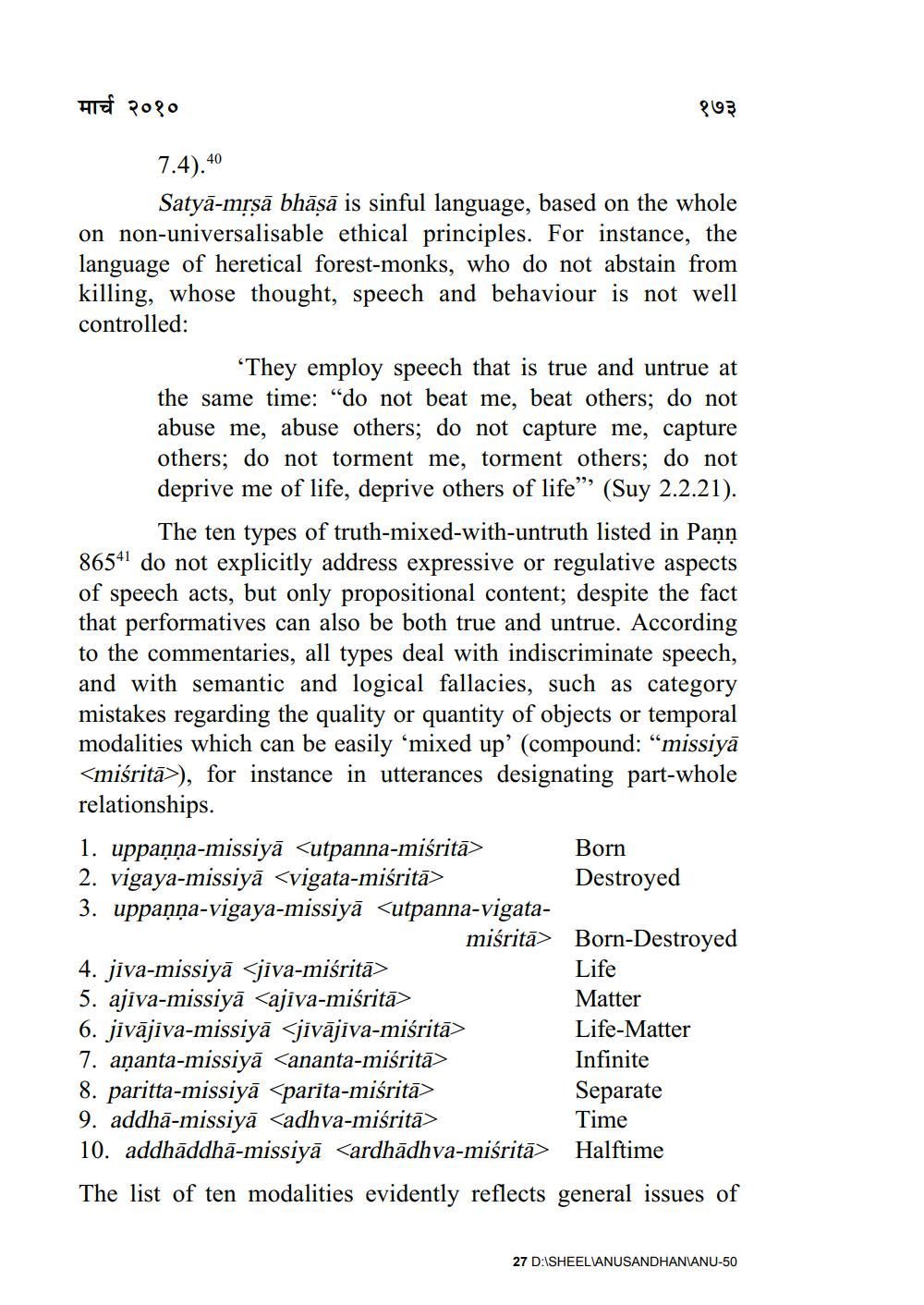Book Title: Truthfullness and Truth in Jaina Philosophy Author(s): Peter Flugel Publisher: ZZ_Anusandhan View full book textPage 8
________________ मार्च २०१० १७३ 7.4). 40 Satyā-mrsā bhāṣā is sinful language, based on the whole on non-universalisable ethical principles. For instance, the language of heretical forest-monks, who do not abstain from killing, whose thought, speech and behaviour is not well controlled: ‘They employ speech that is true and untrue at the same time: “do not beat me, beat others; do not abuse me, abuse others; do not capture me, capture others; do not torment me, torment others; do not deprive me of life, deprive others of life” (Suy 2.2.21). The ten types of truth-mixed-with-untruth listed in Pann 86541 do not explicitly address expressive or regulative aspects of speech acts, but only propositional content; despite the fact that performatives can also be both true and untrue. According to the commentaries, all types deal with indiscriminate speech, and with semantic and logical fallacies, such as category mistakes regarding the quality or quantity of objects or temporal modalities which can be easily ‘mixed up' (compound: “missiyā <miśritā>), for instance in utterances designating part-whole relationships. 1. uppaņņa-missiyā <utpanna-misritā> Born 2. vigaya-missiyā <vigata-miśritā> Destroyed 3. uppaņņa-vigaya-missiyā <utpanna-vigata misritā> Born-Destroyed 4. jiva-missiyā <jiva-misritā> Life 5. ajiva-missiyā <ajiva-misritā> Matter 6. jivājiva-missiyā <jivājiva-misritā> Life-Matter 7. ananta-missiyā <ananta-misritā> Infinite 8. paritta-missiyā <parita-misritā> Separate 9. addhā-missiyā <adhva-misritā> Time 10. addhāddhā-missiyā <ardhādhva-misritā> Halftime The list of ten modalities evidently reflects general issues of 27 D:SHEELANUSANDHAN ANU-50Page Navigation
1 ... 6 7 8 9 10 11 12 13 14 15 16 17 18 19 20 21 22 23 24 25 26 27 28 29 30 31 32 33 34 35 36 37 38 39 40 41 42 43 44 45 46 47 48 49 50 51 52 53
